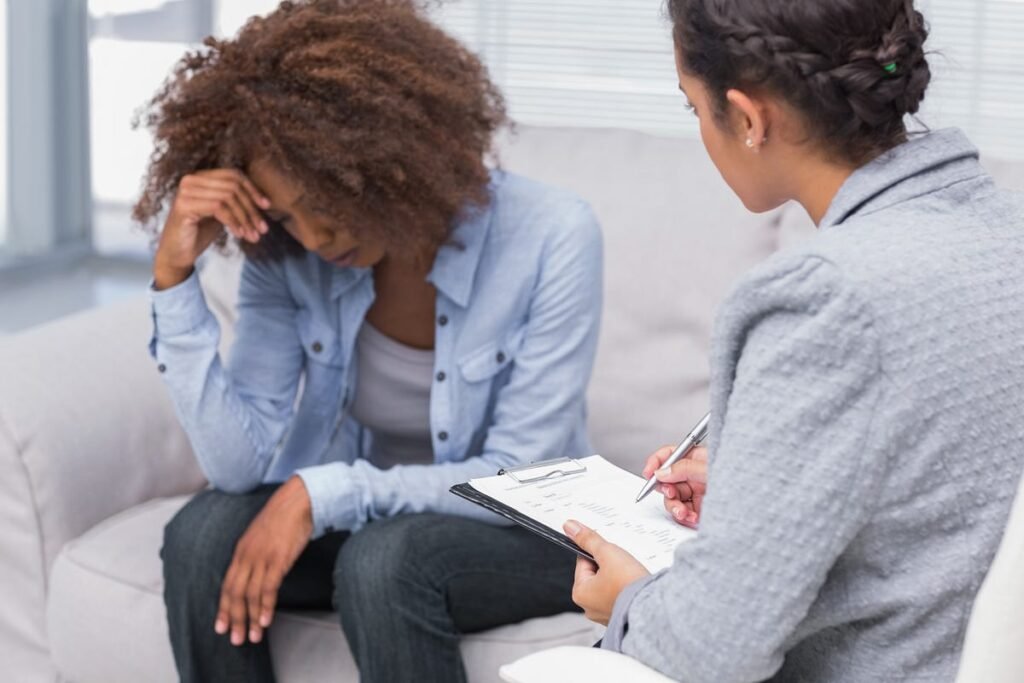Depression is a word that many people use casually, often confusing it with sadness or temporary stress. In some societies, especially in countries like Pakistan, it’s still treated as a sign of weakness rather than a medical condition. But is that really the case? Is depression just weakness, or is it a real illness that deserves proper care and treatment? Let’s uncover the truth step by step.
What Exactly is Depression?
Depression is more than just feeling sad or down for a few days. It’s a mental health condition that affects the way you think, feel, and act. A person with depression often struggles with low energy, hopelessness, loss of interest in activities, and changes in sleep and appetite. Unlike sadness, which comes and goes with life’s challenges, depression can last for weeks, months, or even years if untreated.
Why People Think Depression is Weakness
In many cultures, including Pakistan, mental health is misunderstood. People often believe that if someone is strong enough, they can “snap out of it.” Some even think depression is a result of laziness or lack of willpower. This stigma stops many from seeking help, fearing that others will label them as weak or incapable.
But the reality is different. Depression is not a personal failure — it’s a medical condition linked to changes in brain chemistry, genetics, and life experiences. Just as nobody blames a person for having diabetes or asthma, depression should not be seen as a flaw in character.
Is Depression a Real Illness?
Yes, depression is recognized worldwide as a real illness. Medical research shows that depression is caused by imbalances in brain chemicals like serotonin, dopamine, and norepinephrine. It can also be triggered by trauma, long-term stress, chronic illness, or even genetics. Doctors and psychiatrists treat depression with a combination of therapy, medication, and lifestyle changes — the same way other illnesses are treated.
Signs and Symptoms of Depression
Understanding the symptoms can help separate depression from simple sadness. Common signs include:
-
Persistent sadness or emptiness
-
Loss of interest in hobbies and activities
-
Trouble sleeping or oversleeping
-
Feeling guilty or worthless
-
Difficulty concentrating or making decisions
-
Fatigue and low energy
-
Thoughts of self-harm or suicide
If someone experiences these symptoms for more than two weeks, it’s a clear sign of depression and should not be ignored.
Why Depression Needs Proper Treatment
Treating depression is important not only for mental health but also for physical well-being. Untreated depression can lead to heart disease, weakened immunity, digestive issues, and other serious health problems. It also affects relationships, work performance, and overall quality of life. With the right treatment, however, recovery is possible, and many people go on to live fulfilling lives.
How to Support Someone with Depression
If someone around you is struggling, remember that support and understanding go a long way. Here are some simple ways to help:
-
Listen without judgment
-
Encourage professional help (therapy or counseling)
-
Avoid phrases like “just be strong” or “it’s all in your head”
-
Offer to accompany them to appointments if they feel nervous
-
Check in regularly to remind them they are not alone
Breaking the Stigma Around Depression
Calling depression “weakness” only makes the problem worse. By spreading awareness and treating it as a real illness, more people will feel safe seeking help. Schools, workplaces, and families all play a role in normalizing mental health discussions. Just like physical health check-ups, mental health check-ups should be encouraged.
Final Thoughts
So, is depression just weakness or a real illness? The answer is clear: depression is not weakness — it’s a medical condition that requires care, compassion, and treatment. Recognizing this truth can save lives, reduce stigma, and help millions get the support they deserve.
Read More: Top 10 Health Benefits of Walking 30 Minutes Daily



1 Comment
I’ve been browsing online more than 3 hours today, yet I never found any interesting article like yours. It’s pretty worth enough for me. In my view, if all site owners and bloggers made good content as you did, the web will be a lot more useful than ever before.